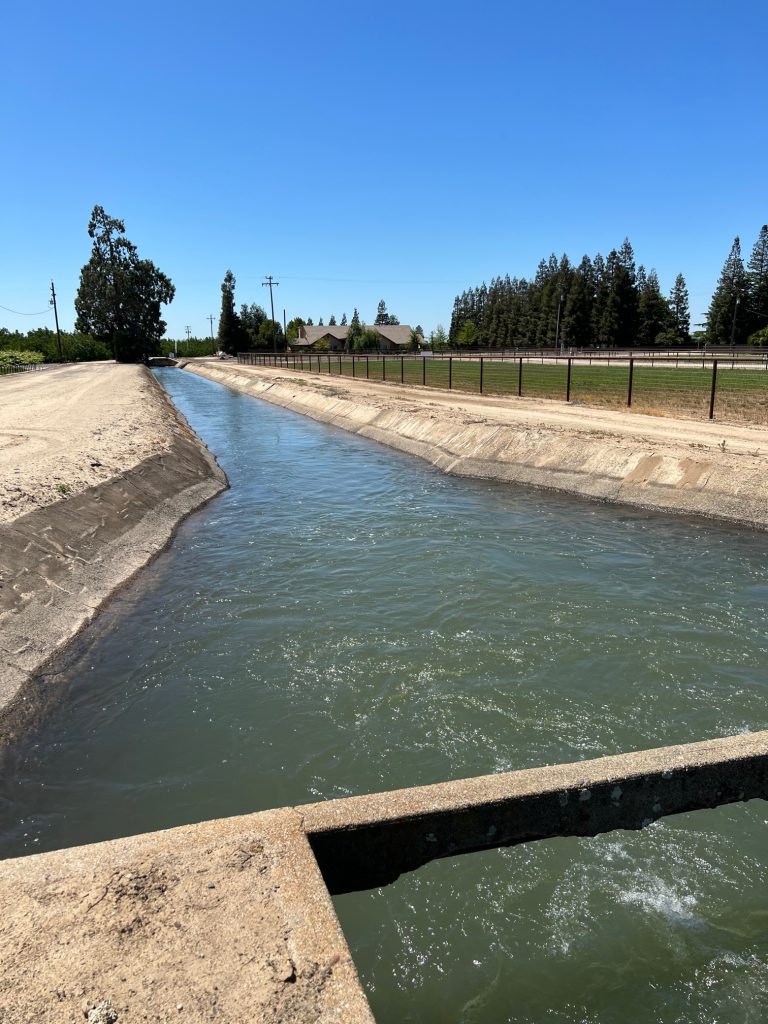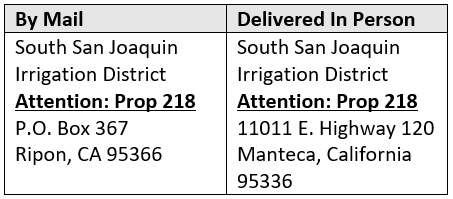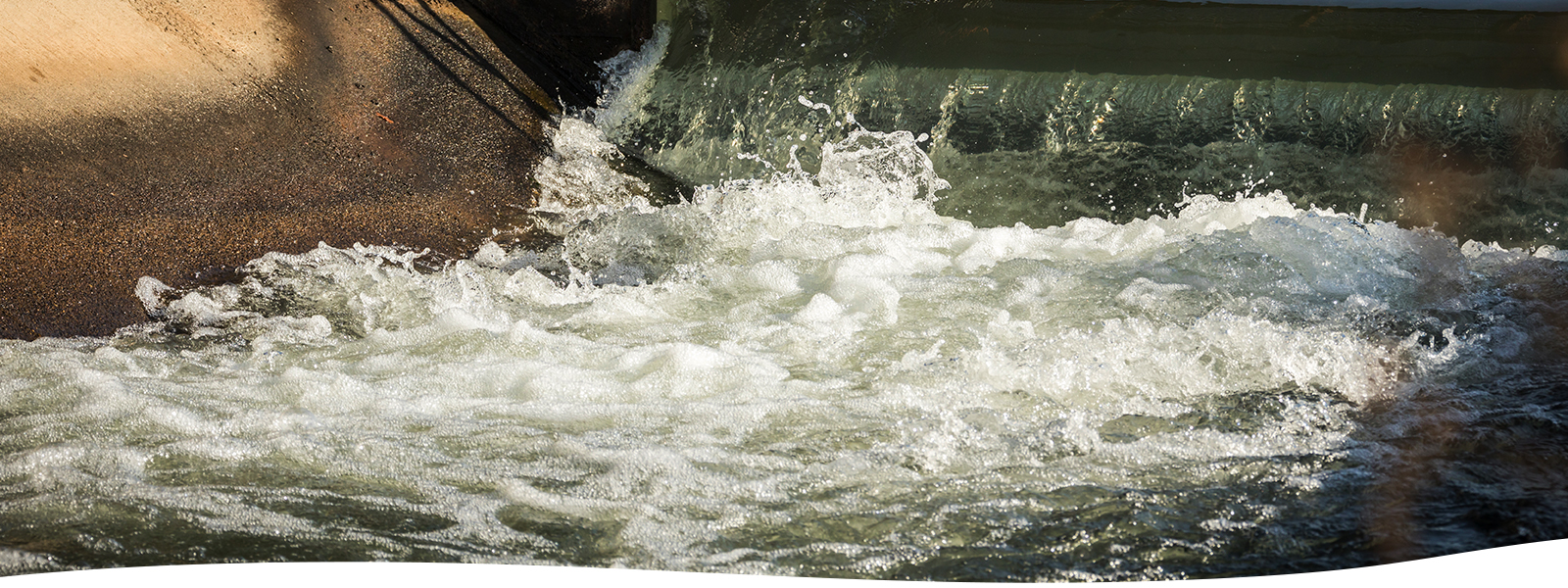Press Release: New Rates Fund Reliable Irrigation Water
Proposal to increase irrigation rates passes after Public Hearing
NOTICE IS HEREBY GIVEN THAT the South San Joaquin Irrigation District (SSJID) Board of Directors will conduct a Public Hearing on July 25, 2023, at 9:00 a.m. to consider a five-year schedule of changes to irrigation rates. The proposed changes are based on an independent Cost-of-Service Analysis that was adopted by the Board of Directors May 23, 2023.
For more information read the full Proposition 218 Notice or the FAQs below.


Frequently Asked Questions
The South San Joaquin Irrigation District (SSJID or the District) was formed in 1909 to bring surface water from the Stanislaus River to transform Southern San Joaquin County through irrigated agriculture. Today, SSJID delivers irrigation water to over 55,000 acres within its territory.
Only SSJID’s irrigation customers would be subject to the proposed rate increases. Irrigation customers include record owners of the parcel receiving irrigation water from SSJID and growers who lease farm ground and pay for SSJID irrigation water. Property owners are identified from the County’s property tax roll. Irrigation customers are identified from SSJID’s customer database.
SSJID has not increased its irrigation rates since 2000. Costs to provide irrigation service continue to rise due to regulatory and inflationary pressures in addition to the repair, rehabilitation, and replacement of irrigation infrastructure, some of which was built over 100 years ago. Cost categories such as administrative, payroll, operations, construction materials, equipment and vehicles, and capital improvements are included in the District’s cost of service analysis.
The actual cost of providing irrigation service far exceeds the revenue generated from irrigation rates billed to and received from customers. The SSJID Board of Directors has adopted a policy that supplements irrigation rate revenue with irrigation non-rate revenue and general-purpose revenues to cover the full cost of providing irrigation service. In the last few years, SSJID has had to use irrigation non-rate revenues, general purposes revenues, and money from its reserves, to cover the cost of providing irrigation service. This current business model is unsustainable.
In addition to operations and maintenance costs, the District has identified in its adopted Water Master Plan an additional $191 Million in capital improvement needed to ensure the water supply reliability for all District customers, improve the level of service for irrigation customers, and to repair, rehabilitate and replace aging District infrastructure.
The District’s long-term business strategy is to incrementally raise irrigation rates to reduce irrigation service monetary losses and reduce reliance on general purpose revenues to cover the costs of irrigation service. This plan of action will result in making Water Master Plan capital improvements more affordable and constructed in a timely manner. SSJID has prepared a detailed Cost-of-Service Analysis to show the full cost of providing irrigation service and the amount of irrigation non-rate revenues and general purpose revenues used to cover those full costs.
Failure to raise irrigation rates will lead to accelerated losses in the Irrigation Fund and depletion of District Reserves. The District will also need to reevaluate how the Capital Improvement Program (CIP) will be funded. Failure to implement the CIP will result in a decline in service for irrigation customers and will result in the eventual failure of parts of SSJID’s irrigation system.
The SSJID Board of Directors will consider the proposed irrigation rates at a public hearing scheduled for July 25, 2023, at 9:00 am at the District Office Boardroom (11011 E. Highway 120, Manteca, California).
SSJID can only use the revenue collected from irrigation rates on costs associated with providing irrigation services. SSJID’s irrigation rate revenue is placed in a separate fund referred to as the Irrigation Fund. The Irrigation Fund is only used to pay for costs attributable to providing irrigation services. The Irrigation Fund is not used for any non-irrigation services costs. SSJID’s irrigation services and the costs of those services are detailed in the District’s Cost-of-Service Analysis to support the proposed rate increase.
By law, the proposed irrigation rates must comply with the following substantive requirements:
- Revenues from the irrigation rates will not be used for any purpose other than that for which the rates are imposed;
- Revenues from the irrigation rates will not exceed the direct and indirect costs required to provide irrigation services;
- The rates will not exceed the proportional cost of the services attributable to the customer;
- The rates will be imposed for a service actually used by, or immediately available to the customer; and
- The rates will not be imposed for general governmental services where the service is available to the public at large in substantially the same manner as it is to the customer.
No, you will continue to pay the acreage rate on your property tax bill issued by San Joaquin County, and your volumetric bill via online payment or at the District’s Office at 11011 E. Highway 120, Manteca, CA 95336.
Provided the SSJID Board of Directors does not receive sufficient written protests and the proposed rates are approved on July 25, 2023, the new acreage rate would be collected on the 2023-2024 San Joaquin County Property Tax Bill, and the new volumetric rate would be billed during the 2024 Irrigation Season. Annual rate increases through 2028 as proposed in the rate schedule must be confirmed by the SSJID Board of Directors every year prior to going into effect, and the SSJID Board of Directors may elect to reduce the proposed rate but may not increase it without initiating and successfully completing an additional rate setting process under the California Constitution (Proposition 218).
 *Volumetric Tiers are based on the minimum and maximum tier listed on each district’s website. Actual Tier levels vary among the districts.
*Volumetric Tiers are based on the minimum and maximum tier listed on each district’s website. Actual Tier levels vary among the districts.Customers can expect additional rate increases beyond 2028, if costs continue to rise under current regulatory and inflationary pressures. The SSJID Board of Directors will re-evaluate the need for future rate increases by analyzing the future cost of irrigation service and the performance of its revenue streams. Future rate increases are subject to performing an additional rate setting process pursuant to the California Constitution (Proposition 218). The District is limited by law to charge no more than the actual cost of service.
Proposition 218, adopted on November 6, 1996, added Articles XIII C and XIII D to the California Constitution, which impose certain procedural and substantive requirements with respect to new or increased property-related fees and charges. Consistent with Proposition 218 and the “Proposition 218 Omnibus Implementation Act” (Government Code section 53750, et seq.), the District must provide notice to customers, and the SSJID Board of Directors will conduct a public hearing on the proposed irrigation rates and majority protest procedures (described below).
All protests must be in writing and include an original signature in ink. You may use the form included in the Notice, or you may send a letter that includes your name, the Assessor’s parcel number of your parcel, address of the property, the date, and signature in ink.
Protests must be forwarded to SSJID by mail or delivered in person:

Protests must be sealed in an envelope that conceals the contents, with the return address and APN of your parcel written on the outside of the envelope.
To be counted, protests must be received no later than the close of the public hearing on July 25, 2023.
To maintain the integrity of the process, only protests with original signatures will be accepted. Photocopied or scanned signatures will not be accepted. Protests will not be accepted via fax or email. Protests not submitted as required will not be counted.
Written protests will remain sealed until the tabulation of protests commences at the conclusion of the public hearing. Prior to the close of the public hearing on July 25, 2023, a written protest may be submitted, or changed, or withdrawn by the person who submitted the protest.
Prior to the tabulation of the written protests, neither the protest nor the envelope in which it is submitted will be treated as a public record, pursuant to Government Code section 62549(c), in order to protect the integrity of the protest process.
No, you don’t have to be a registered voter or live within the District to file a protest. This is a property-related fee so only property owners and growers leasing property subject to the proposed irrigation rates may submit a protest.
No. Under Government Code section 53755(b), one written protest per parcel, filed by an owner or tenant of the parcel, shall be counted in tabulating the protests.
No, there is only one protest per parcel and all protests are weighted equally per the California Constitution (Proposition 218) and the Government Code.
Yes, you may. Every parcel subject to SSJID’s irrigation rates may submit a protest. You can do that in one letter, listing all your parcel situs addresses, and one protest per parcel will be counted.
Written protests will be accepted until the close of the public hearing on July 25, 2023. At the conclusion of that hearing, a neutral 3rd party designated to do the tabulation will tabulate the protests.
At the time of tabulation, the written protests will be unsealed and tabulated in public view so as to permit all interested persons to meaningfully monitor the accuracy of the tabulation process.
The designated person(s) will determine the validity of all protests. The designated person(s) will accept as valid all protests except those in the following categories:
- A photocopy which does not contain an original signature.
- An unsigned protest.
- A protest without a legible printed name.
- A protest which appears to be tampered with or otherwise invalid based on its appearance or method of delivery, or other circumstances.
- A protest submitted via email.
- A protest submitted in an envelope that does not have the property address or APN written on the outside of the envelope.
If it is not possible to tabulate the protests on the same day as the public hearing, or if additional time is necessary for public testimony, the Board of Directors may continue the public hearing to a later date to receive additional public testimony, information, or to finish tabulating the protests, or may close the public hearing and continue the item to a future meeting to finish tabulating the protests.
If, according to the final tabulation of the protests, the number of protests submitted against the proposed irrigation rates exceeds 50% (that is, 50% plus one) of the identified number of parcels subject to the irrigation rates, then a “majority protest” exists and the Board of Directors will not impose any increase to the irrigation rates.
If you have questions, please contact SSJID at (209) 249-4600, or via email at [email protected].

